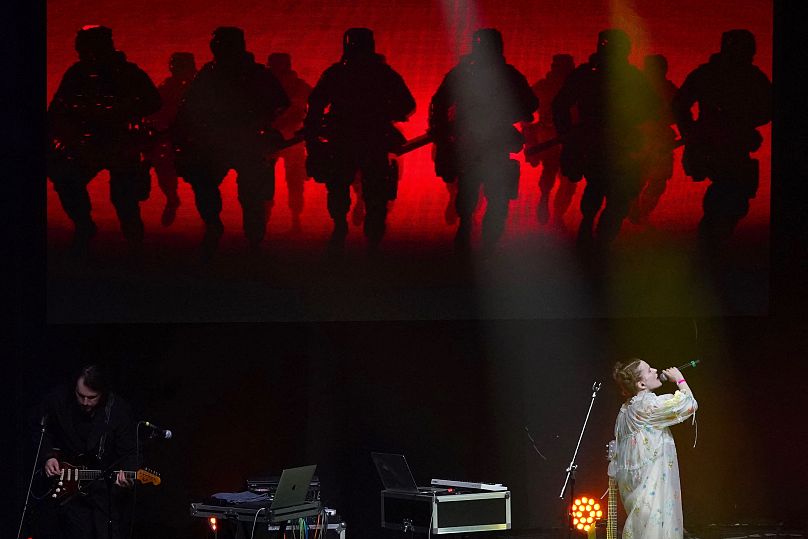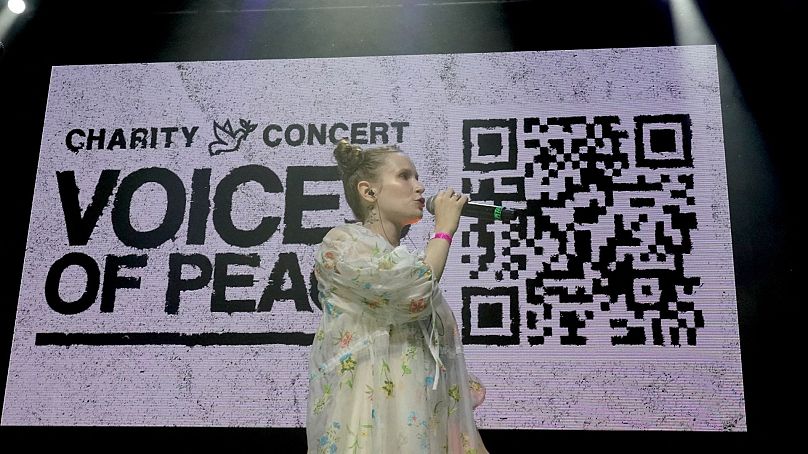Defying the Kremlin
Wearing a white dress and with her hair, as always, in two buns, Monetochka delighted the crowd with a percussive poem mocking Russia's attack before a set of electro-pop hits.
"We found a way where we can really make a difference and for a second forget about the feeling of guilt," said the softly spoken 23-year-old, whose real name is Liza Girdimova.
Born just before Vladimir Putin came to power, Monetochka is part of a generation that has only known his rule.
Her lyrics used to reflect concerns about Russia's trajectory "hidden in metaphors." The last two months have changed that.
"I'm talking about war without synonyms," she told AFP, referring to a Kremlin order that Russians can refer to the fighting only as a "special military operation."
At the same time, she says, she's wary of ostracising fans who remain in Russia and who are sympathetic to the Kremlin's narrative. "I try with all my strength not to scare people that are on the fence, but to bring them towards us instead."
The series in Europe is a far cry from previous tours - even after fighting erupted in 2014 after Ukrainians ousted their Moscow-backed government and the Kremlin annexed Crimea from Ukraine.
After that, she said, Russian artists still performed in Ukraine and there was little practical difference between a gig in Saint Petersburg and Ukraine's now war-scarred city of Kharkiv.
"We could go there and sing in our Russian language, our Russian songs and nobody did anything to us," she said. "People there knew our songs by heart."
The singing by heart, at least, hasn't changed. Hundreds of her fans in Warsaw sang along: Belarusians, Russians and Ukrainians standing shoulder to shoulder.



0 تعليقات